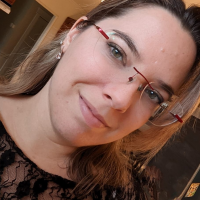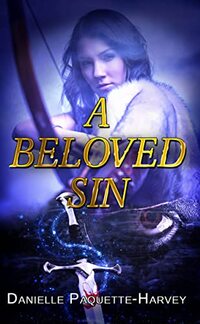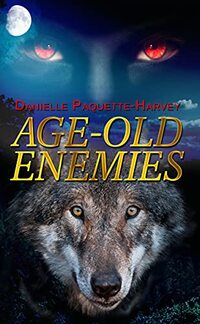Danielle Paquette-Harvey Interview Published on: 02, May 2023
 What is the name of your hometown and what do you think is the best thing about the place?
What is the name of your hometown and what do you think is the best thing about the place?
I am from Montreal. One of the things that I absolutely love about Montreal is how you can find people from all around the world and learn about other cultures. As a child, I had fun learning words in many different languages that my friends spoke. There are also a lot of great places to visit, and always something fun to do.
How did your first attempt to write a book go?I have attempted to write stories since I was a kid, but I had never tried publishing them. When I tried to publish my first book, I discovered a world I didn’t know about. I realized how often you had to re-read and edit your story and how much it could change along the way. I found out it was more complicated than I thought it was.
Are there any rituals or habits you do each day to be inspired to write? How do they help your writing? Can you describe their specific value?I get all distractions out of the way (including my cell phone), put on noise-canceling headphones, and listen to music. I have specific playlists I listen to when I write, and they vary depending on the scene I need to write. For example, I have a playlist made especially for battle scenes, which is very different from the one I listen to when I write a love scene.
Do writers read a lot? Why or why not?They do; at least, I do. I think writers are all book lovers and their love for stories comes from reading. Immersing myself in a book is a great way to relieve my stress. It also allows me to see how other authors write and how they tackle certain situations in their books. It opens my mind to new ideas and can inspire some ideas for future books, adjusting them to your style and world.
As an author, what is your favourite way to get to know your characters before beginning to write?As an author, I always define my character before writing them. I usually start with a trait of personality that this character will have, as well as the role he will play in the storyline. I close my eyes and imagine what this character looks like, what he likes and dislikes, and I write everything down. When I can clearly see him in my imagination, I go on and write all the details about this character, and then I name him.
In writing literature, how is plot different from setting?The plot is what happens in the story, basically, the storyline. The setting is when and where it takes place, for example: in a castle’s ballroom at night.
How did you draft a storyline for your novel, The Fallen?When I started writing The Fallen, I already knew how the novel would start and end, but I didn’t know what would happen in between. I knew who some of the main characters would be. I began by outlining the main events that needed to happen to get from the beginning to the end. I then reflected on the character development required for these events and added those to the outline. I then added a few secondary characters and made sure I had a love story since all my fantasy books also have a love story.
Once my outlining was done, I started writing the first draft. But, as I wrote the story, some characters ‘came to life,’ as is often the case. You get revelations about the characters, and the storyline strays away from the outlining you had initially done, but it’s what makes the story better and livelier. You just need to make these new events work with the outlining required for the main story, wrap everything together, and you have the first draft.
When writing a dialogue between two characters, do you start a new paragraph when the conversation changes characters?It depends on the length of the dialogue and the context. For example, when I write a conversation, I add some descriptions either about how the character is feeling, if he’s moving, smiling, reacting to what’s being said, or if something changes in the environment between the characters that are talking.
I will mostly change the paragraph when I’m in one of those descriptive lines rather than between two sentences in the dialogue. But again, if a character has a very long thing to say, like a monologue, I won’t hesitate to start a new paragraph in his dialogue.
Did you let anyone read your novel, The Goddess's Wards while you were still working on it? What was their reaction?I have two very close author friends with whom I share snippets of the novels I’m currently working on. They’re usually very excited to read them and are eager to read the whole book. Besides, my Arc readers are the first to read the manuscript when all my edits are done, and I’m happy with the book. I send them the Arc version simultaneously as I send it to my editor for the final edits (typos and minor things).
What was the hardest part of editing your book, Age-old Enemies?While editing Age-Old Enemies, I thought I was almost done; I realized I needed to add an essential scene for my character development. That scene needed to take place near the beginning of the book, and because of that, I needed to change almost all the chapters that came after that. In the end, I re-wrote most of the storyline a second time and then started my edits again.
What were the top five mistakes you've made as a writer with your first book?The worst mistake was that my storyline’s flow was too fast. My characters weren’t relatable enough; they lacked depth and backstory. I also feel like my grammar level wasn’t good enough, as English is my second language. Those were the main mistakes I’ve made.
What are the advantages of writing with pen and paper in contrast to typing on PC? Which one do you prefer?One of the advantages of writing with pen and paper is taking notes in the margins and highlighting or circling things. It is more natural to me than writing on a PC. But I mainly write on my PC because if I was writing with pen and paper first, then I’d need to re-write everything again on a PC. It’s faster for me to write directly on my PC. I still keep notebooks to scribble my notes and ideas with pen and paper on the side.
Does having a book editor stifle creative writing?Definitely not! The editor guides the creative flow so that it becomes the masterpiece it is meant to be. A good editor helps the writer rather than hinders him.
Are you working on anything at present you would like to share with your readers?I am working on the first book of my next series, Blood and Kisses. It will be called Cursed King (you can already add it to your Goodreads “To Read” list Goodreads ).
It will be centered around the child, born from an impossible love between a vampire and a werewolf: half-vampire...half-werewolf. Stronger than both, deadlier than any werewolf or vampire. Nature would not stand for such an imbalance of power; at least, that is what the oracle had foretold.
The series will include vampires, elves, werewolves, and many fantastic creatures. It should consist of five books and be dark fantasy romance novels.
What were some of the challenges you faced on the road to publication? How has been your experience working with AllAuthor?Becoming an author, I decided to become a self-published indie author. One of the reasons was I wanted to keep control of my work. Traditional publishing houses often require authors to write in specific genres, like romance, fantasy, and horror. But my books are a mix of romance and fantasy. I knew a traditional publishing house would ask me to remove one or the other, and I wanted to keep both genres in my books. After considering all, being a self-published indie author was the option that fitted my needs the most.
I have had a fantastic experience working with AllAuthor! AllAuthor allows authors to increase the visibility of their books and attract potential readers. It’s a great website and also allows authors to connect together. The mockups and GIFs are also excellent, and the Twitter scheduler is very useful. All in all, I think AllAuthor offers amazing tools to authors.
Share Danielle Paquette-Harvey's interview
Danielle Paquette-Harvey , from Montreal, is a master of weaving romance and adventure into captivating novels that keep readers on the edge of their seats. She is an Amazon International Best Sellers author of werewolf and vampire steamy romance fantasy novels. With a knack for creating complex characters and vivid settings, Danielle takes readers on thrilling journeys that explore the depths of human emotion and the beauty of unexpected love.
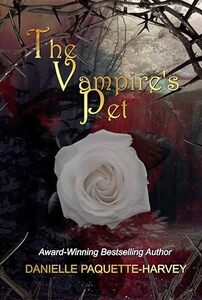 The Vampire's Pet: Romantasy at its darkest (Blood and Kisses Chronicles : A Dark, Gothic Romance Series)
Genre: Paranormal Romance, Dark Romance & Erotica, Fantasy
The Vampire's Pet: Romantasy at its darkest (Blood and Kisses Chronicles : A Dark, Gothic Romance Series)
Genre: Paranormal Romance, Dark Romance & Erotica, Fantasy
 Cursed King: A Vampire Dark Fantasy Romance (Blood and Kisses Book 1)
Genre: Paranormal Romance, Romance, Dark Romance & Erotica, Fantasy
Cursed King: A Vampire Dark Fantasy Romance (Blood and Kisses Book 1)
Genre: Paranormal Romance, Romance, Dark Romance & Erotica, Fantasy
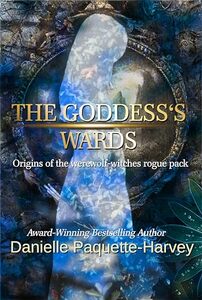 The Goddess's Wards: Origins of the werewolf-witches rogue pack (Longing mates)
Genre: Paranormal Romance, Dark Romance & Erotica, Fantasy
The Goddess's Wards: Origins of the werewolf-witches rogue pack (Longing mates)
Genre: Paranormal Romance, Dark Romance & Erotica, Fantasy
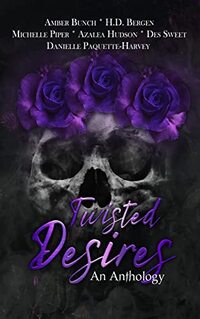 Twisted Desires: An Anthology
Genre: Paranormal Romance, Romance, Erotic Romance, Dark Romance & Erotica, Fantasy
Twisted Desires: An Anthology
Genre: Paranormal Romance, Romance, Erotic Romance, Dark Romance & Erotica, Fantasy
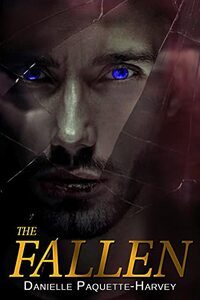 The Fallen (Longing mates Book 3)
Genre: Paranormal Romance, Romance, Dark Romance & Erotica, Fantasy
The Fallen (Longing mates Book 3)
Genre: Paranormal Romance, Romance, Dark Romance & Erotica, Fantasy
